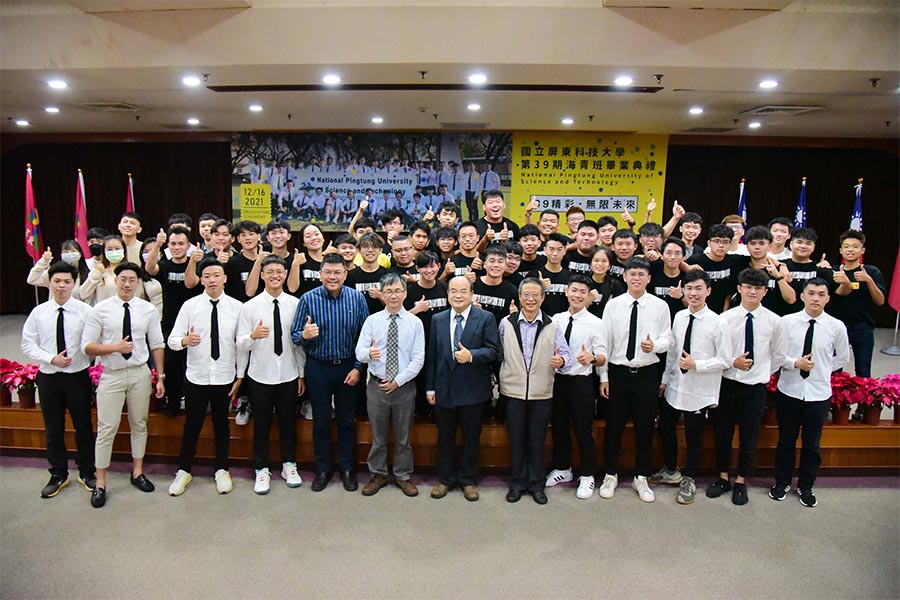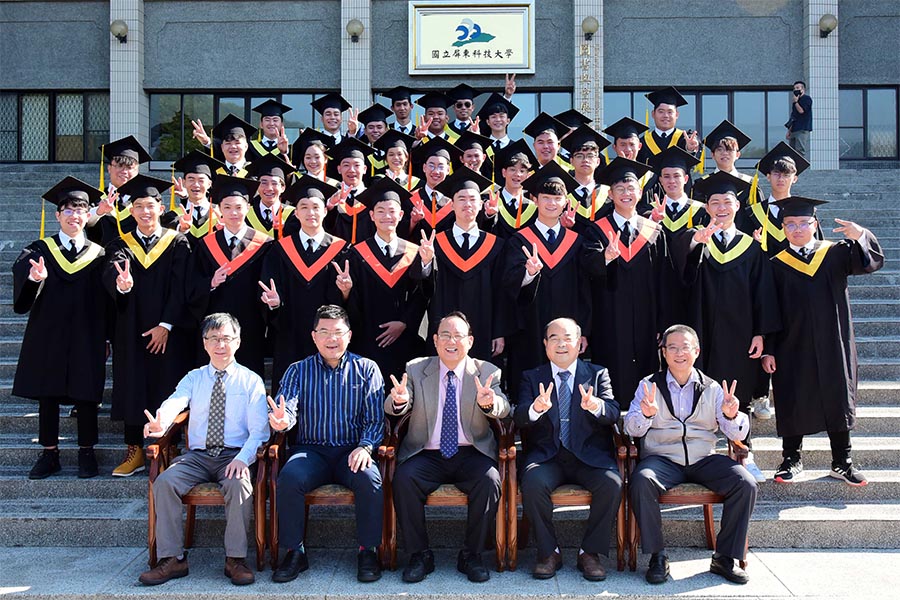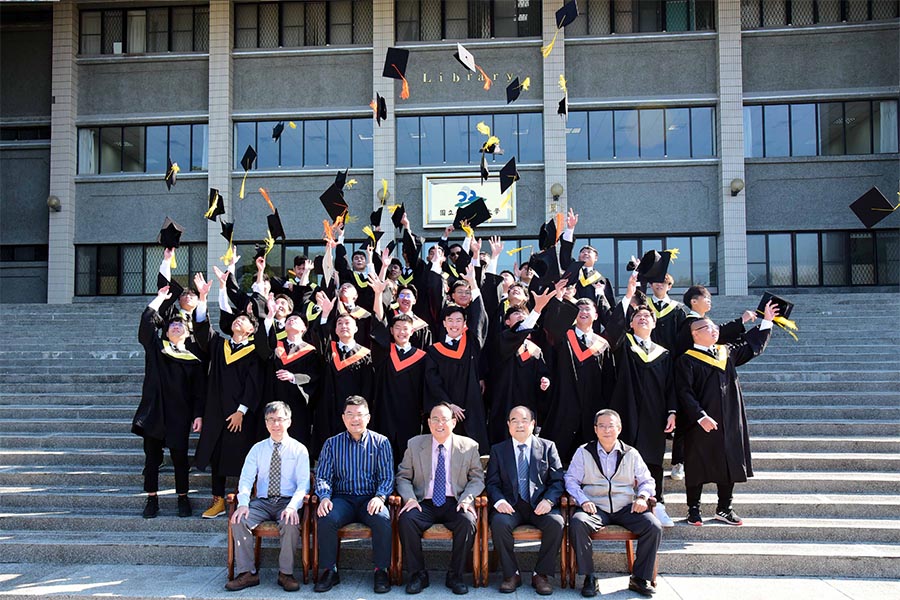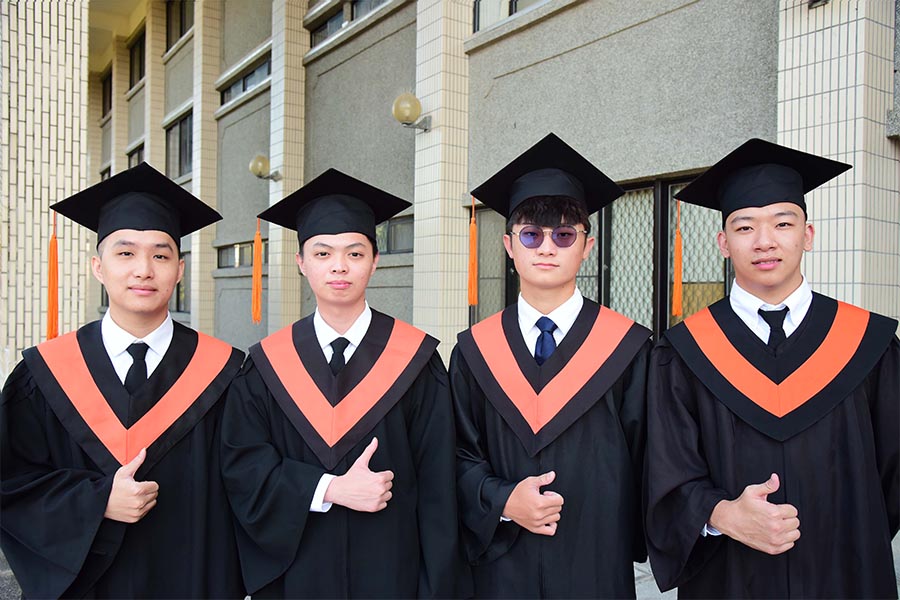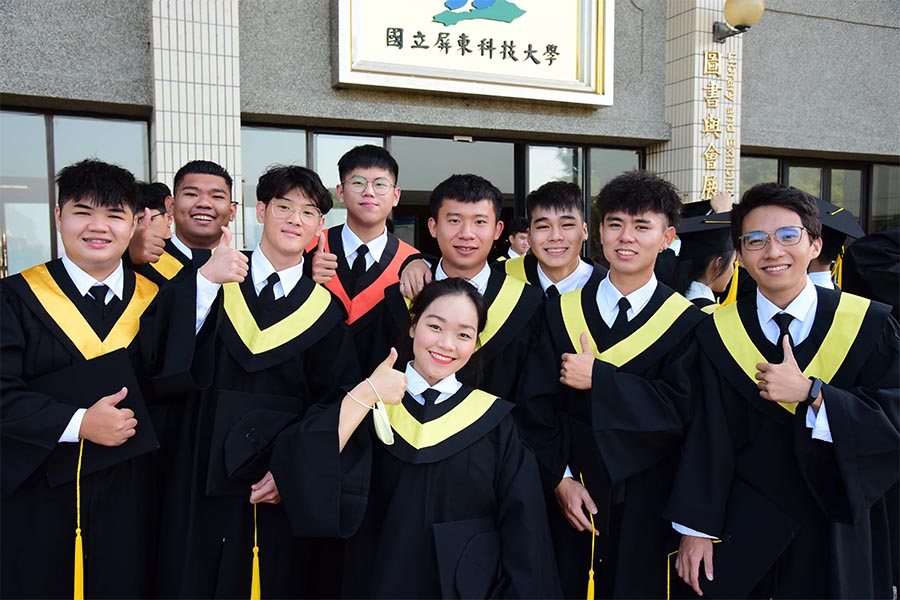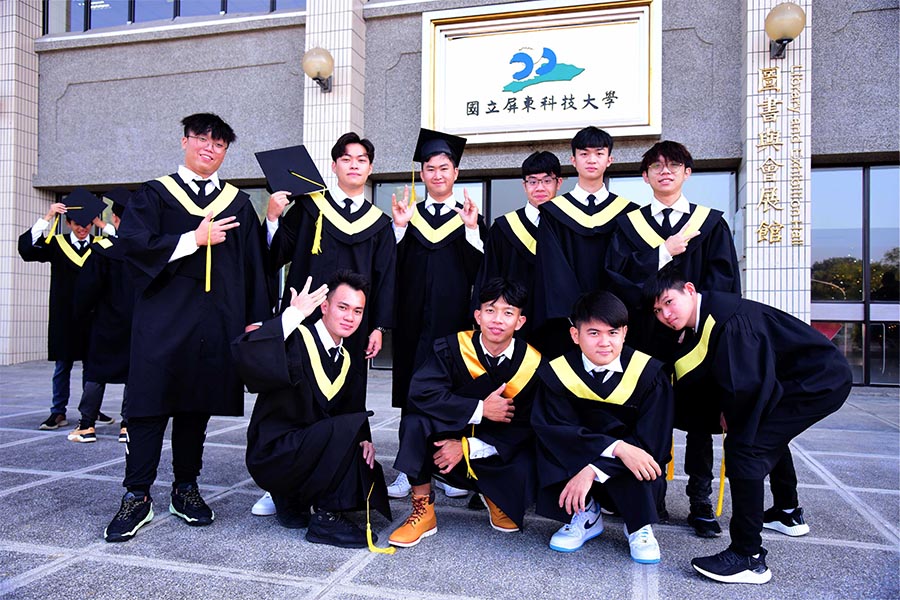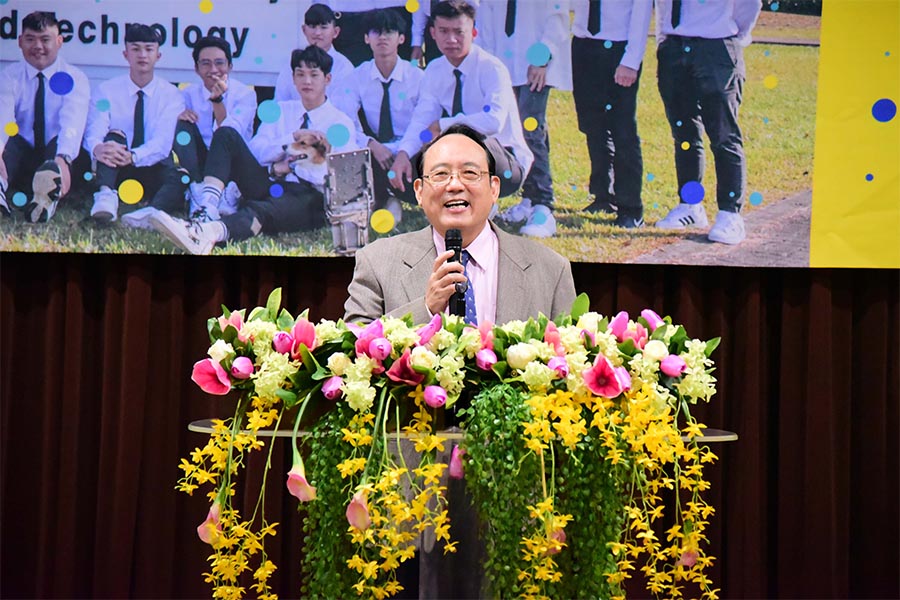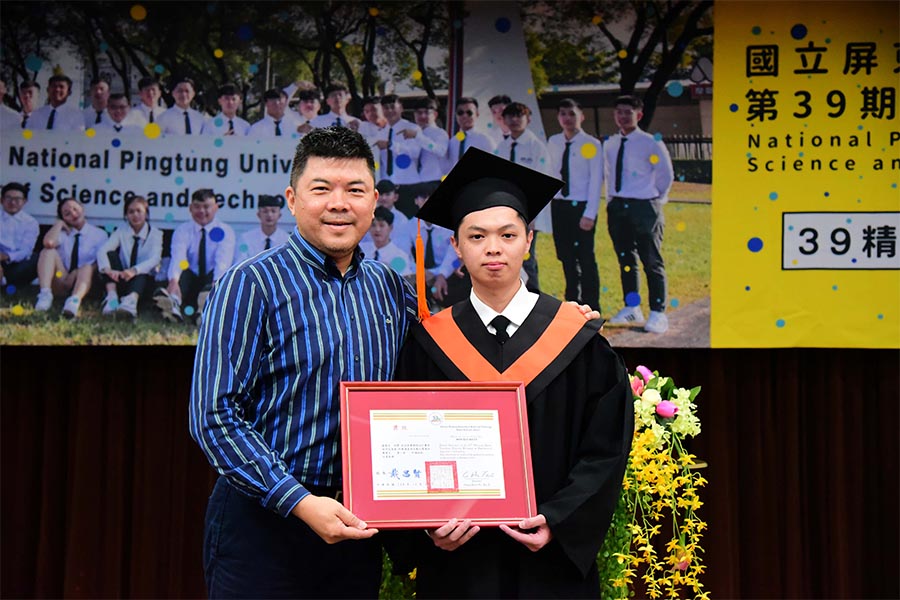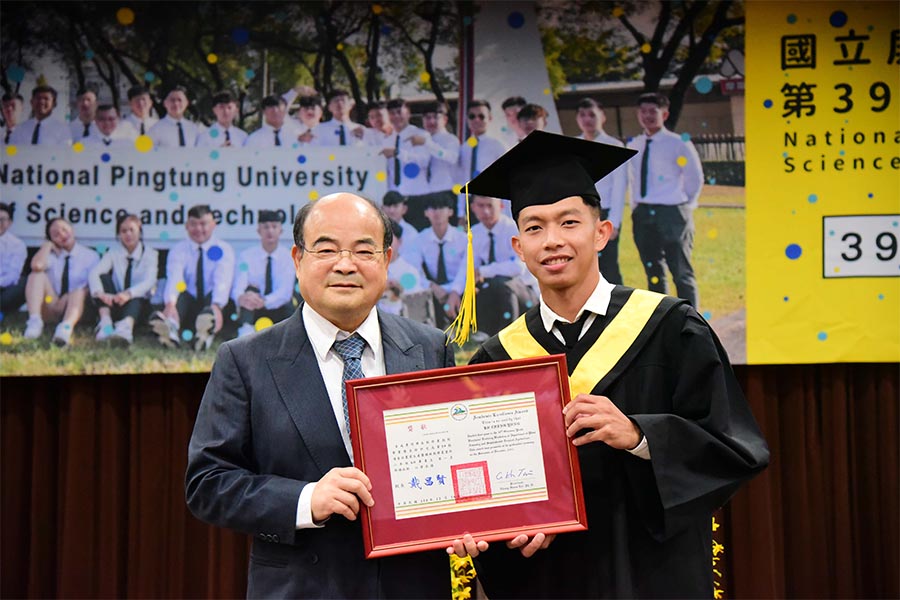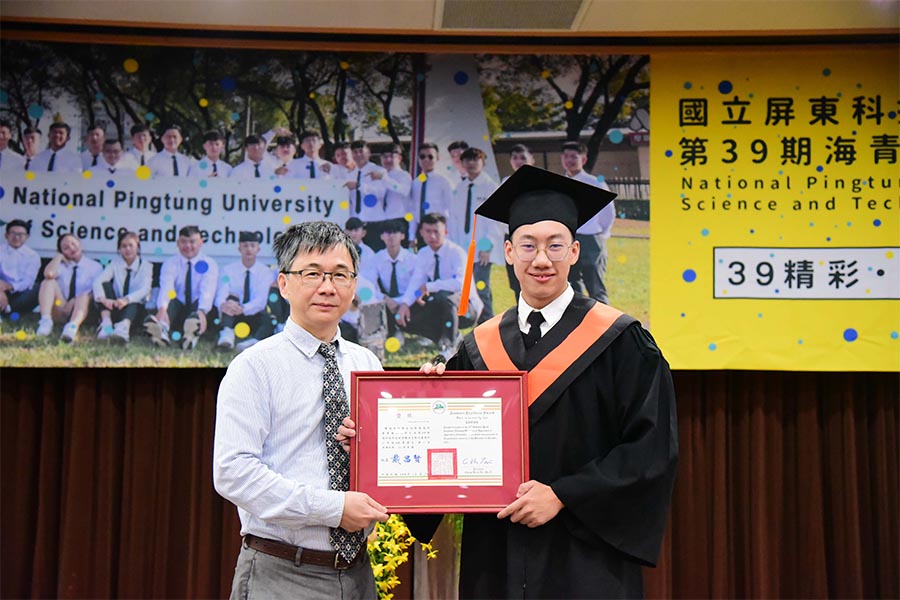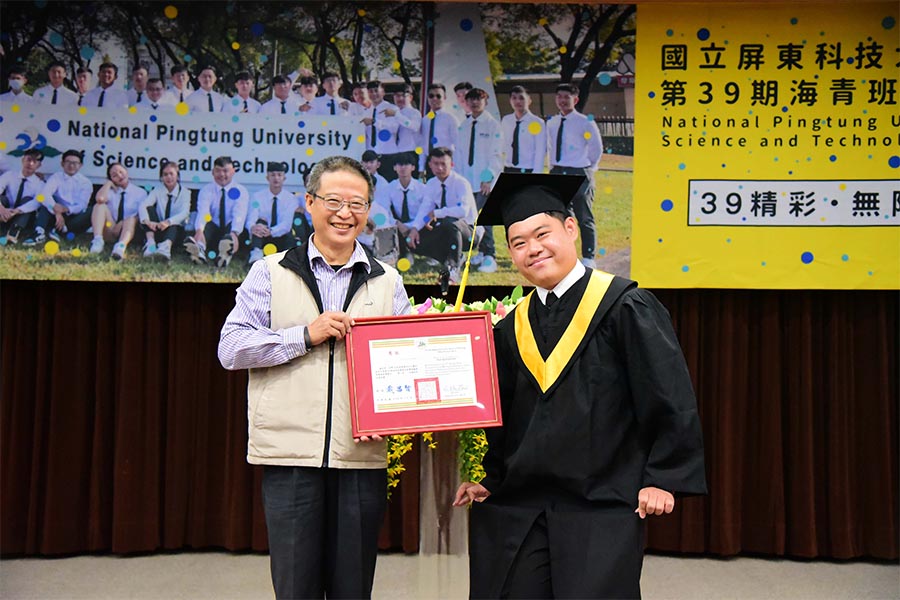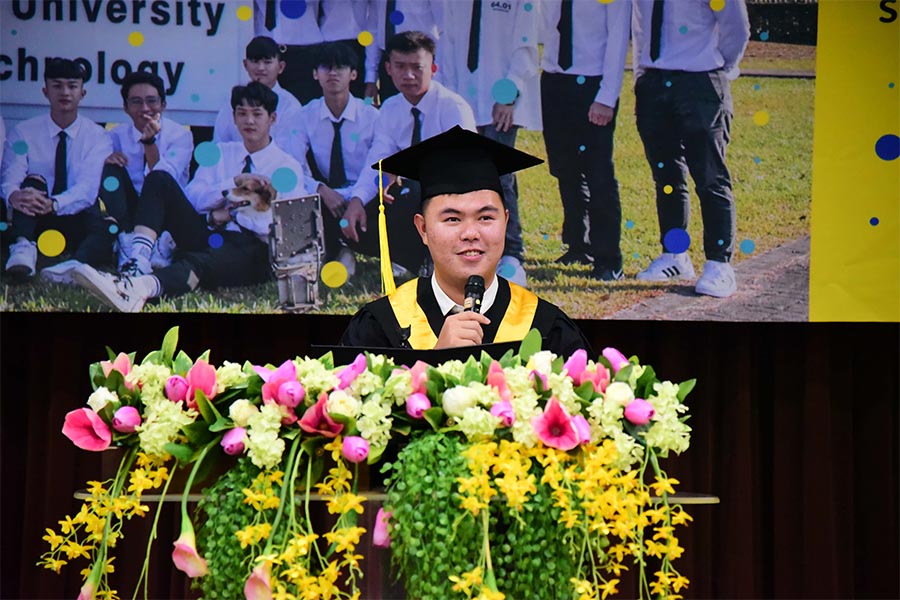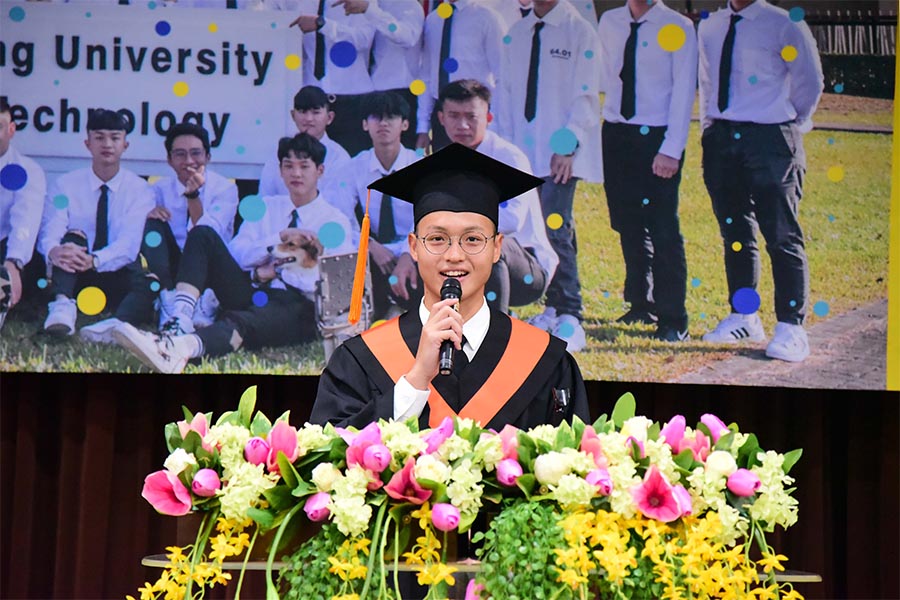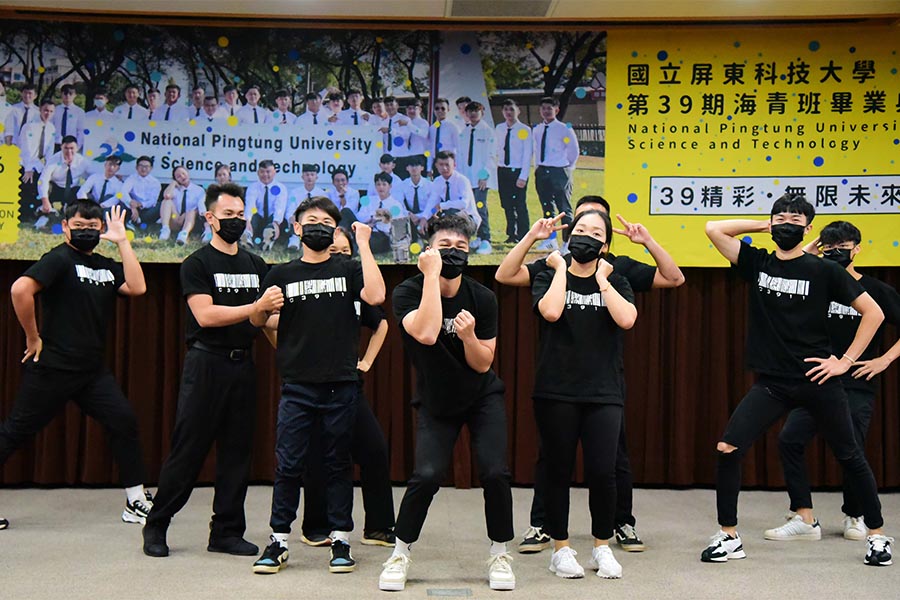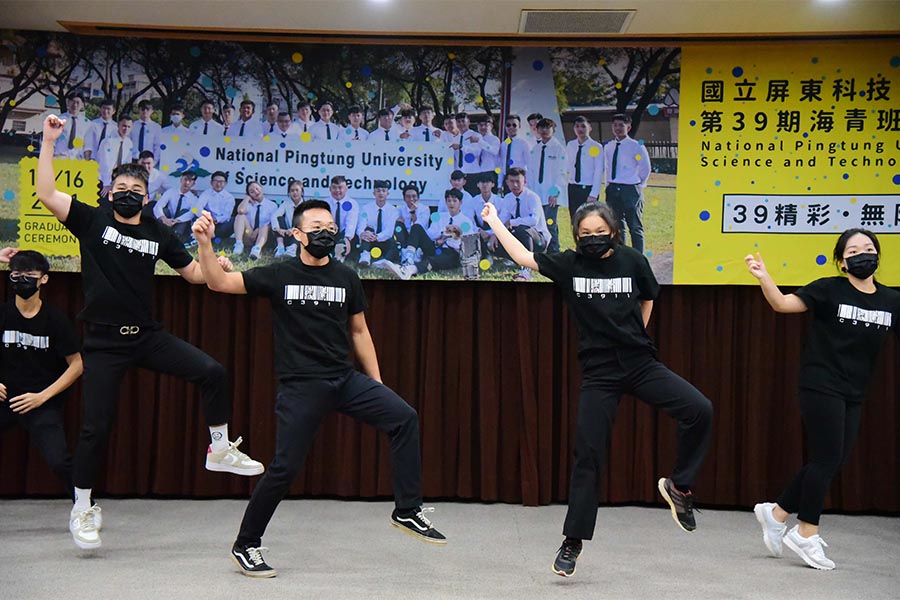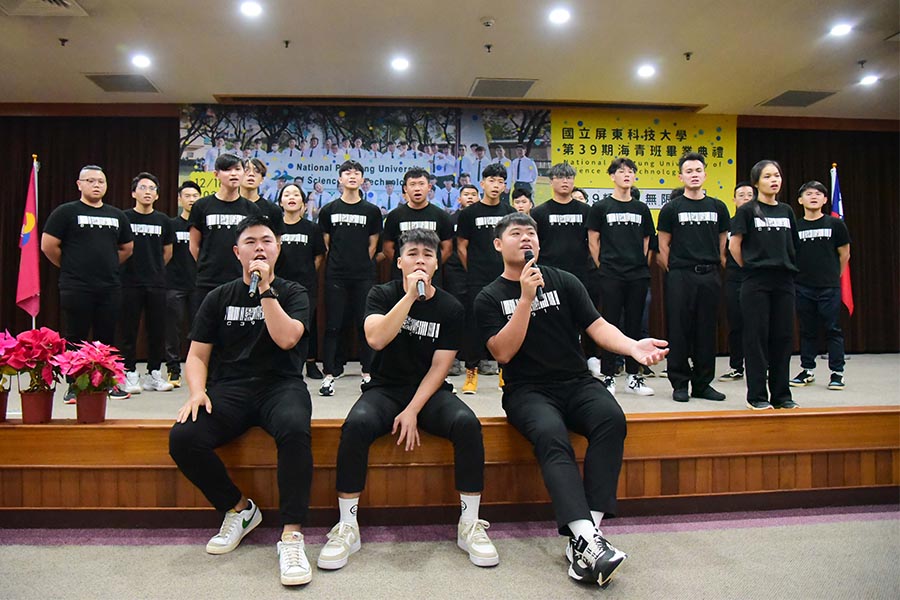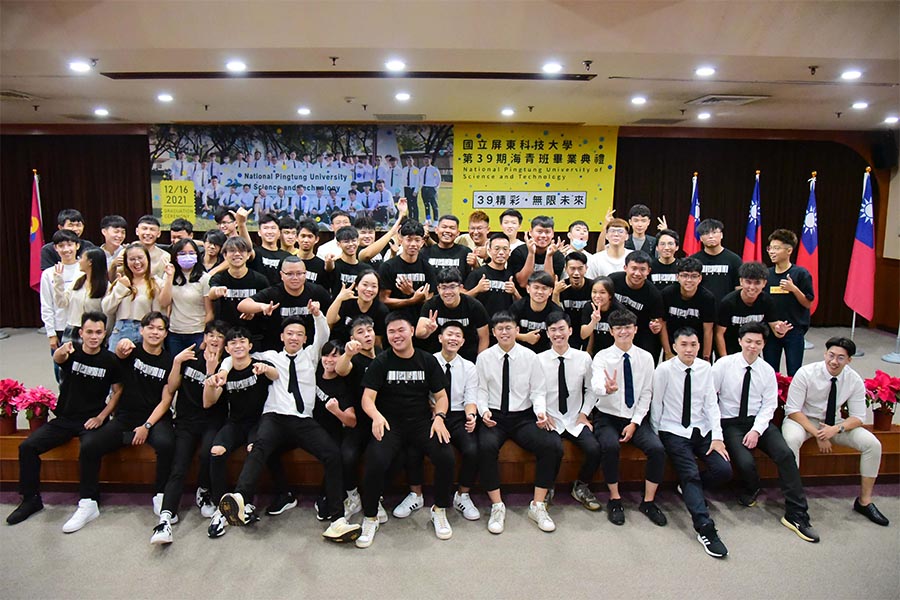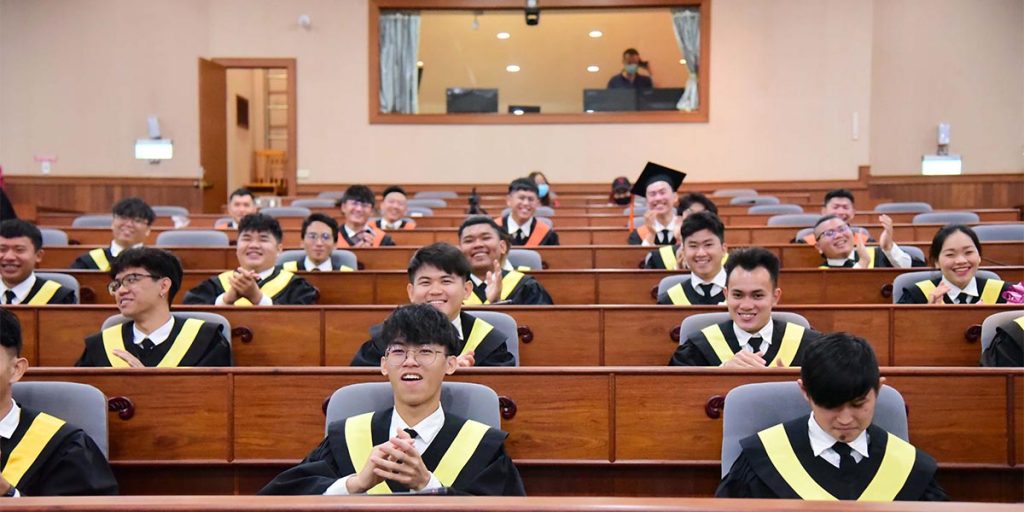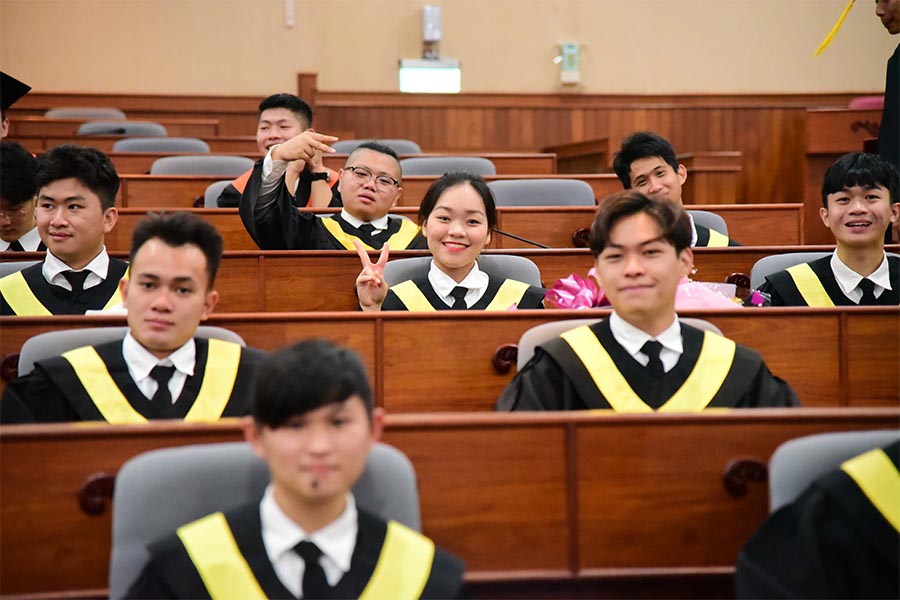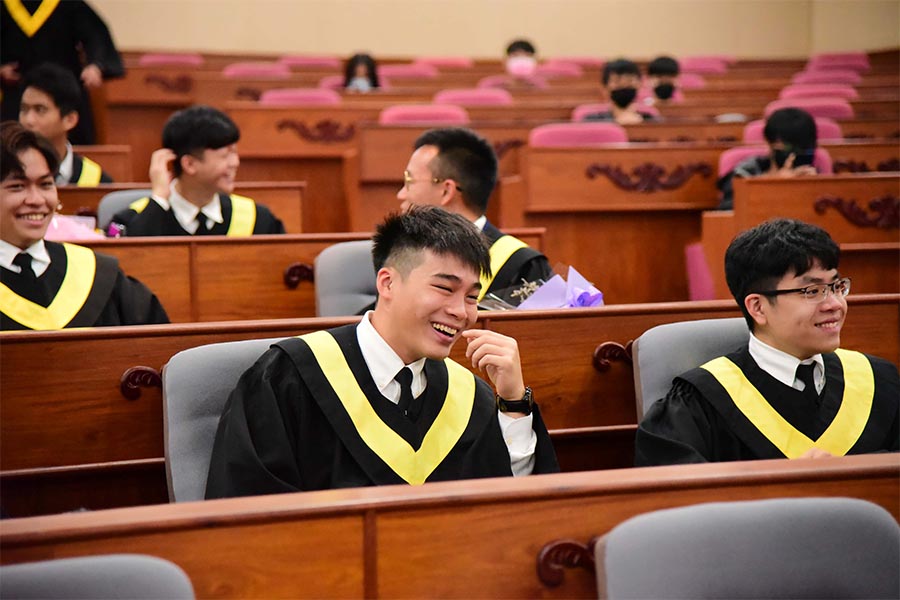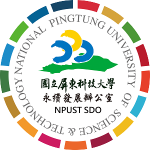On December 16th, NPUST held a graduation ceremony for the 39th Overseas Youth Vocational Training School at the university’s International Conference Hall. A total of 37 students from Malaysia graduated from the program, which was divided into an “Automated Agriculture” section and “Agricultural Production and Precision Tropical Agriculture” section. The ceremony was presided over by NPUST’s president, Dr. Chang-Hsien Tai, who was accompanied by International Director Pomin Li, Department of Biomechanical Engineering Director Li Wen-Tzong Lee, and Department of Plant Industry Horng-Liang Lay. Although relatives of the graduating students were unable to come from abroad to be there in person, the OIA broadcast the ceremony live to family and friends far away so that they could be part of the moment.
President Tai congratulated the students, saying “after two years of hard work, you have successfully graduated. I hope, in addition to the sense of gratitude you have towards your parents and teachers, you will cherish the relationships you built with other students while studying, and continue to support each other in the future. I also wish the 39th Class of Overseas Youth a safe journey home and success in the business and careers you pursue—and that you will link up with your predecessors through the alumni association to benefit from their experience and networks.”
Puan Hong Bin, the student representative of the graduating class, delivered a speech: “it is said that a person is a bottle, empty at birth. Over time, the bottle slowly fills up. All of you will go in that bottle; and you will put me in yours.”
Clearly a rich harvest of memories has come in for the students.
At this year’s ceremony, something new was worked into the procession of events, as the graduates carefully prepared a splendid and dynamic dance, creating a scene that was full of youth and vitality. The dance was followed by a class-wide chorus of the song “Cheers” by Mayday, making a memorable moment that is sure to last a lifetime.
During the two-year program students attended theoretical courses and received two years of practical training, with regular visits to farms, agricultural machinery companies, seedling nurseries, vegetable gardens, orchards, leisure farms and pastures. The real-world activities allow the students to get a solid handle on the things they learned in the classroom, and acquire additional agricultural knowledge and experience from the various sites. Expectations are that the graduates will be able to immediately enter the workplace and give full play to their professional knowledge and skills when they return to their home country.


